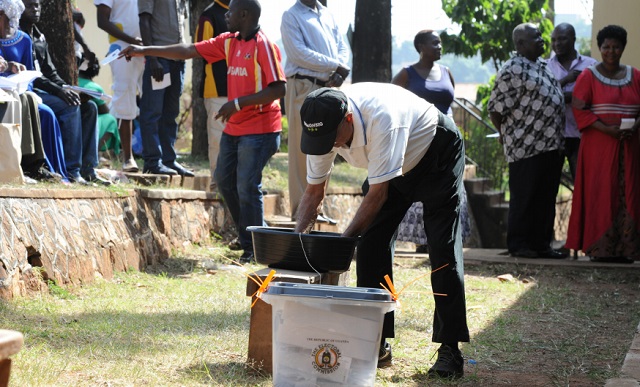
Kampala, Uganda | THE INDEPENDENT | The Justice Forum (JEEMA) has appealed to Parliament to ensure that the country holds elections as provided for under the Constitution or recommend a postponement of the polls until threats posed by the COVID-19 pandemic are dealt with.
JEEMA President Asuman Basalirwa made the call while appearing before the Legal and Parliamentary Affairs Committee of Parliament which is currently interfacing with political players on the revised roadmap for the 2021 general election.
In the roadmap, the Electoral Commission (EC) announced a ban on open-air campaigns and instead advised candidates to campaign using digital platforms. But Basalirwa said that the processes leading to the formulation of the roadmap were not consultative enough, raising issues of credibility and acceptability from key stakeholders. He added that elections envisaged under the Constitution are free, fair and credible and that the revised roadmap will not engender these key tenets.
“It is either we have a normal election provided for Under Article 61 of the Constitution or we have no election. We can’t have an election where there is a curfew, no free movement allowing candidates to interact with the population and other restrictions due to the pandemic,” Basalirwa said.
Basalirwa told legislators that the life of political parties is entirely dependent on public meetings and rallies and that any attempt to ban the events is in effect killing political parties and by extension killing electoral processes. He added that banning public meetings and at the same time allowing a normal vote is contradictory.
“Political parties by nature are public institutions; they operate in the public space and one of the ways of showcasing strength is through public meetings. We think that it is unwise for the Electoral Commission to come up with a program of elections and that the program has no component of public meetings in them,” Basalirwa explained.
Meanwhile, JEEMA argues that the roadmap is silent about the manner in which presidential aspirants are going to conduct consultations given the four months already lost during the COVID-19 lockdown.
Basalirwa equally noted that it was impossible for the National Council for Higher Education (NCHE) to carry out verification of academic documents in a short time provided by the Electoral Commission. The council is mandated to verify and equate documents specifically for persons who studied outside the country to ensure that they align with the requirements for the positions being contested for by the candidates.
Basalirwa says that in the event that the two entities are unable to undertake the task, this will pose a problem to some Ugandans who seek to have their documents verified since the process will not be undertaken and therefore not nominated.
JEEMA also recommended that the proposed regulations for Political Parties and Organizations should be withdrawn. According to Basalirwa, the proposed regulations are unconstitutional and contradict different party legal frameworks.
The regulations were presented before parliament on Thursday last week, by the Justice and Constitutional Affairs Minister Prof. Ephraim Kamuntu seeking to provide guidance on the conduct of meetings and internal party elections at a time when the world is challenged with managing crowds in the wake of the COVID-19 pandemic.
Under the proposed regulations, the government seeks to waive the requirement of holding delegates conferences to determine official candidates for different leadership positions. Instead, it is suggested, that candidates be chosen by an electoral college and that the political parties hold virtual meetings and circulate resolutions to members who are not physically present.
But Basalirwa says that the regulations conflict with Article 71 of the Constitution which provides for a multiparty political system where political parties are mandated to carry out internal processes using democratic principles like holding regular elections.
The Legal and Parliamentary Affairs Committee chairperson Jacob Oboth probed the effect of postponing the elections which are provided for under the Constitution every after 5 years and having a normal election without any restrictions at a time when the world is faced with a challenging epidemic.
 The Independent Uganda: You get the Truth we Pay the Price
The Independent Uganda: You get the Truth we Pay the Price





